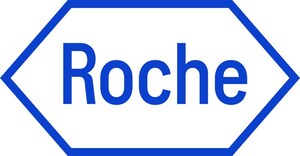Roche announces launch of the Dual Target HIV-1 Qualitative Test in markets accepting the CE mark
-- New test will help increase access for early infant HIV diagnosis
PLEASANTON, California, Feb. 18, 2014 /PRNewswire/ -- Roche (SIX: RO, ROG; OTCQX: RHHBY) announced today that its dual-target HIV-1 qualitative test, v2.0[1] has received CE Mark certifications, allowing it to be sold for clinical use in the European Union and those countries accepting CE Marked products. The test simultaneously amplifies and detects two separate regions of the HIV-1 genome, which are not subject to selective drug pressure. This unique, dual target design allows for more reliable results to confidently and effectively diagnose HIV-1 infection.
The new dual-target HIV-1 qualitative test, v2.0 works with both plasma and dried blood spot (DBS) collection cards to facilitate PCR testing, and more importantly make sample collection and transportation easy, even from the smallest infant in the most rural area.
The DBS collection card and the need for more sensitive and accurate information to diagnose babies early in their life and patients across many African countries is instrumental to facilitate the state of the art healthcare required for the region. The HIV-1 dual target qualitative test and DBS cards eliminates need for refrigeration, drastically reduces the volume of blood to be stored or transported, and the stress for the mother and the child is dramatically improved.
"The ability to determine the HIV status of an infant as early as six weeks is crucial to determining the appropriate care and support for HIV-positive babies," stated Paul Brown, President of Roche Molecular Diagnostics. "With this new solution from Roche, we are reiterating our commitment to healthcare solutions that make a real difference for patients."
About Early HIV Infant Diagnosis
Diagnosing HIV in infants and young children is a major challenge. Antibody tests are ineffective in children because the mother's antibodies remain in the child's system following birth. In fact, antibody tests in infants may yield false positive results for up to 15 months. There are a number of alternate methods available for early diagnosis of HIV infected infants. Many approaches use molecular techniques, specifically detecting the viral DNA and/or RNA, which enables HIV diagnosis as early as six weeks.
Early diagnosis is critical for children infected with HIV. If found HIV positive, they can receive appropriate medical care before they develop significant illness, and can remain healthy despite their infection. If found HIV negative, the mother can get appropriate counseling to ensure their child maintains a HIV-free status.
About the test
The COBAS® AmpliPrep/COBAS® TaqMan® HIV-1 Qualitative Test, version 2.0 is an in vitro diagnostic, total nucleic acid amplification test for the qualitative detection of Human Immunodeficiency Virus Type 1 (HIV-1) DNA and RNA (or total nucleic acid, TNA) in human plasma or dried blood spots using the COBAS® AmpliPrep Instrument for automated specimen processing and the COBAS® TaqMan® Analyzer or COBAS® TaqMan® 48 Analyzer for automated amplification and detection.
The test is a diagnostic test, indicated for individuals who are suspected to be actively infected with HIV-1. Detection of HIV-1 TNA is indicative of active HIV infection. Infants born to mothers infected with HIV-1 may have maternal antibodies to HIV-1, and the presence of HIV-1 nucleic acid in the infant indicates active HIV-1 infection. In adults, the test may be used as an aid in the diagnosis of HIV-1 infection.
About HIV-1
Accordingly to the World Health Organization (WHO), there were 35 million people living with HIV around the world in 2012. That same year 2.5 million people became newly infected with HIV worldwide.[2] For the most impacted region of Sub-Saharan Africa nearly 1 in every 20 adults or 69% of all people living in this region are with HIV positive.
The transmission of HIV from an HIV-positive mother to her child during pregnancy, labor, delivery or breastfeeding is called vertical or mother-to-child transmission (MTCT). In the absence of any interventions HIV transmission rates are between 15-45%.
Diagnosis, highly active antiretroviral treatment (HAART) and viral load tests, a test to determine the amount of circulating HIV, have contributed to a steady increase in life expectancy for HIV infected people of 13 years.[3]
About Roche
Headquartered in Basel, Switzerland, Roche is a leader in research-focused healthcare with combined strengths in pharmaceuticals and diagnostics. Roche is the world's largest biotech company, with truly differentiated medicines in oncology, immunology, infectious diseases, ophthalmology and neuroscience. Roche is also the world leader in in vitro diagnostics and tissue-based cancer diagnostics, and a frontrunner in diabetes management. Roche's personalised healthcare strategy aims at providing medicines and diagnostics that enable tangible improvements in the health, quality of life and survival of patients. Founded in 1896, Roche has been making important contributions to global health for more than a century. Twenty-four medicines developed by Roche are included in the WHO Model Lists of Essential Medicines, among them life-saving antibiotics, antimalarials and chemotherapy.
In 2013 the Roche Group employed over 85,000 people worldwide, invested 8.7 billion Swiss francs in R&D and posted sales of 46.8 billion Swiss francs. Genentech, in the United States, is a wholly owned member of the Roche Group. Roche is the majority shareholder in Chugai Pharmaceutical, Japan. For more information, please visit www.roche.com.
All trademarks used or mentioned in this release are protected by law.
| [1] The test is called COBAS® AmpliPrep/COBAS® TaqMan® HIV-1 Qualitative Test, v2.0 |
| [2] The UNAIDS Report on the Global AIDS Epidemic 2012. |
| [3] Lancet. Volume 372, Issue 9635, 26 July 2008-1 August 2008, Pages 293-299. |
For media inquiries please contact:
Bob Purcell, Roche Molecular Diagnostics
+1-888-545-2443
Claudia Panozzo, Austria
+43-1-277-87-360
Bianca Hermle, Germany
+49-621-759-5156
Silvia Zucca, Italy
+39-039-2817-612
Hazel Clarke, UK
+44-1444-256922
Francisco Aguilar-Alvarez, Spain
+34-93583-4011
Eudes de Villiers, France
+33-4-76-76-31-26
Banu Kutlu, Turkey
00902123060606
Harald Borrmann, Switzerland
+41-41-799-6253





Share this article